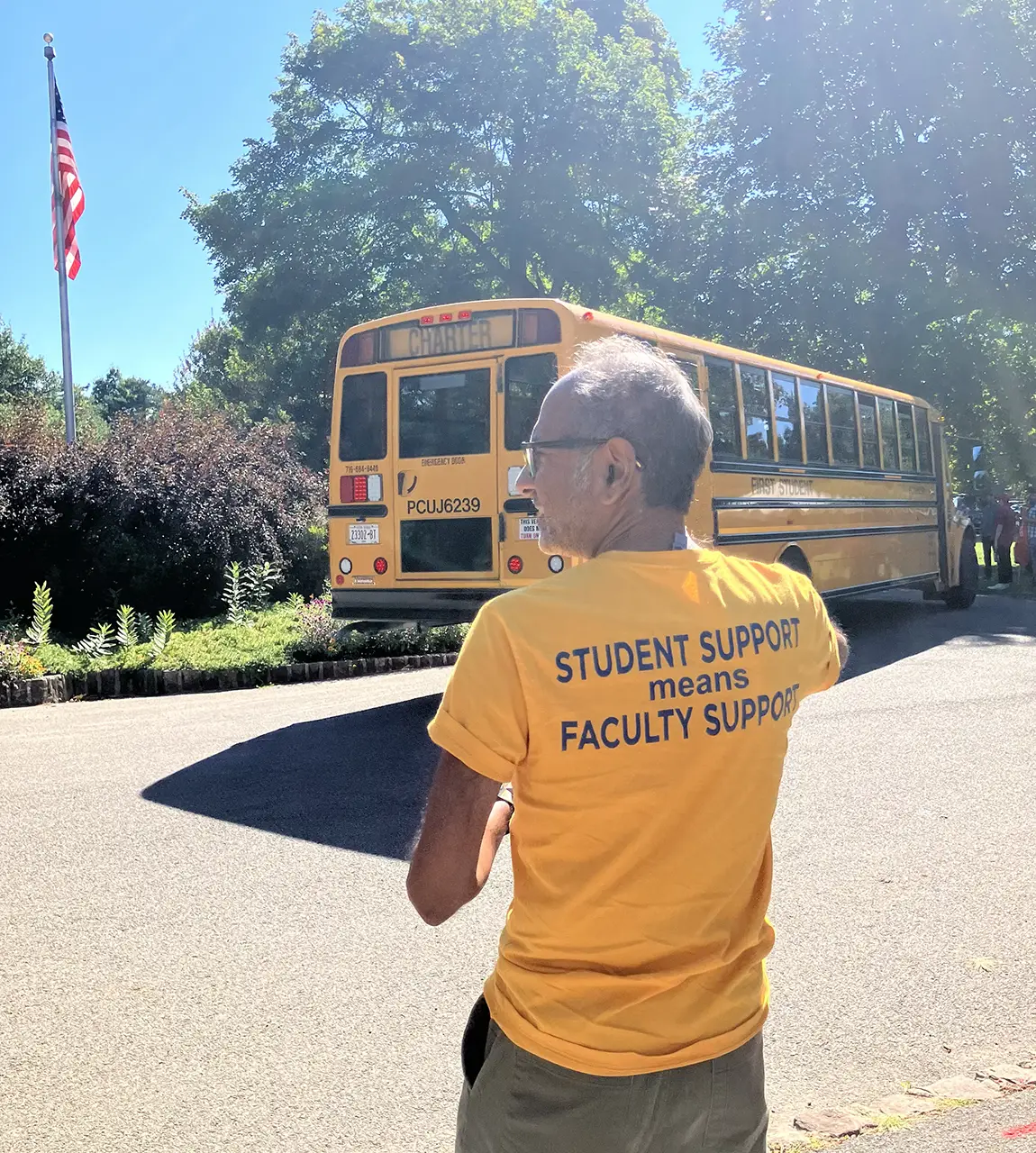NYS Academe Submission Guidelines
NYSC AAUP Academe Submission Guidelines
Approved 10/23/2020
Adapted from AAUP National Academe submission guidelines

General Submission Guidelines
NYS Academe, the magazine of the NYS Conference of the American Association of University Professors (AAUP), welcomes proposals for feature articles and book reviews as well as submissions of articles and opinion columns.
NYS Academe seeks to publish compellingly written, rigorous, salient, and original articles on the critical issues facing higher education and especially those involving and/or relevant to NYS. Our readership includes faculty members, academic professionals, and graduate students from many different disciplines as well as academic leaders, policy makers, and media professionals involved in higher education issues and policy.
Submission of an article, column, or book review (including by invitation) does not guarantee its acceptance; NYS Academe is under no requirement to accept any submission. Accepted articles may be published in print or as online-only features. Decisions about the placement of articles will be made by the Editor.
Submissions should not include defamatory statements or raise other significant legal concerns. Promotion or criticism of candidates running for office in local, state, or national AAUP elections is not allowed in the magazine; neither is misrepresentation of AAUP policy.
All article and column proposals and submissions should be sent to jfkraus1@aol.com.
NYS Academe discourages the following:
- Submissions primarily devoted to specific ongoing disputes involving individuals and their colleges or universities, except in cases of national significance. In such cases, submissions should focus on the wider implications and lessons.
- Submissions that are primarily focused on another national higher education group or union.
- Submissions primarily devoted to specific ongoing disputes involving individuals and AAUP entities including chapters, conferences, or affiliates. However, productive self-reflection and critique of an AAUP entity’s successes and failures are welcome.
- Submissions of material previously published elsewhere. Such submissions must be clearly marked as previously published material.
Article Submissions
If you have a topic in mind, please prepare a brief proposal detailing your specific qualifications to write on the topic, what your approach will be, and how your article will distinguish itself from other coverage of the issue. You may also submit completed manuscripts.
Length: We accept submissions of a variety of lengths; however, it is recommended that submissions are less than 750 words. Submissions must be sent as Word Docs.
Review Process: Please allow sufficient time for review of submissions. Reviewers may include the Editor or the President of the NYSC. NYS Academe is not a peer-reviewed publication.
Editing: Accepted submissions are edited by the Editor.
Biographical Statement: Include a one- or two-sentence biographical statement and indicate whether you would like your email address published with the statement if your submission is accepted.
Notes: NYS Academe articles generally do not include endnotes or footnotes. If and when possible, identify cited works in the text of the article. Avoid bibliographies and lengthy parenthetical references.
Contact Information: Please provide home and office addresses, telephone numbers, and email addresses with your submission. It is important for NYS Academe to have these details in one place so that authors can be contacted in a timely manner.
For further information, write to jfkraus1@aol.com.
Book Reviews
Proposals for book reviews can be sent directly to jfkraus1@aol.com.
Opinion Column Submissions
NYS Academe’s Faculty Forum is an opinion column open to all faculty members, academic professionals, and graduate students who belong to the AAUP. Nonmembers may submit columns but will be expected to join the Association before publication.
Contributions to Faculty Forum should address issues of concern to a wide range of Academe readers, including academics from many different disciplines and others interested in higher education issues and policy. Submissions should adopt a clear point of view and be written in a lively, nontechnical style. They must maintain a collegial tone and be interesting, insightful, and original. In evaluating submissions, the editors will seek a broad representation of institutional types, regions of the country, and ranks in the profession, giving priority to voices that are often marginalized within the profession.
Faculty Forum submissions should be approximately 700 words in length and should not include subheadings, endnotes, tables, or similar attributes. We do not accept submissions that have been previously published elsewhere.

